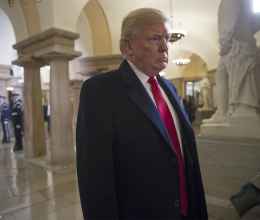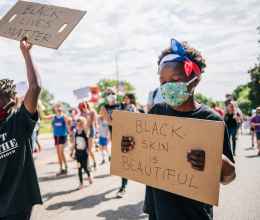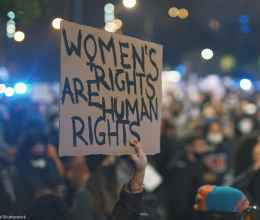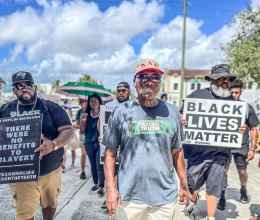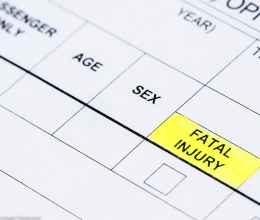
This op-ed was first published in The Hill
Let’s say you are the governor of Florida and are being accused of tragically botching the state’s response to the COVID-19 pandemic. You are also being blamed for the absolute chaos Floridians encountered when they tried to receive desperately needed unemployment benefits, as well as maddening delays in vaccine distribution.
How did this happen? At the outbreak of the pandemic, you chose to follow the lead of then-President Trump, his reckless denial of science and failure to provide hands-on leadership.
So, what do you do to address this crisis moment in the midst of the worst health emergency in 100 years?
If you are Gov. Ron DeSantis you make your legislative priority for 2021 the passage of a law that will criminalize political protest. You champion House Bill 1/Senate Bill 484, which will make it child’s play to shut down any protest you don’t like, including those calling for you and your allies in the Florida Legislature to be voted out of office for your failures during the pandemic, among other reasons.
How easy will it be to stifle political protest in Florida if this new law passes? This easy: Under the new law, if a thousand people are marching peacefully to protest the current leadership, all it will take is for a handful of people to decide to throw a brick through a shop window and the entire crowd will be subject to arrest, a felony conviction and a hefty fine if law enforcement deems the peaceful protest “a riot.” That brick thrower could be an infiltrator acting to deliberately derail a perfectly legal demonstration.
And to make sure that peaceful protesters can’t continue demanding change, they will be denied bail until they see a judge. That’s right. You don’t have to commit a crime yourself or engage in any disorderly and violent conduct; you just need to be exercising your constitutional right to peaceful protest while someone else — with no connection to you — is engaging in such conduct.
Will police and local elected leaders shut down a protest as quickly as that? There’s a good chance they will, and here’s why. DeSantis’ bill states that if they don’t, the city itself can be held liable for any amount of personal injury or property damage. This is a radical change in the law, which currently protects municipalities from such sweeping liability, and it will drive local officials to over-militarize their law enforcement response to peaceful protests in an attempt to avoid costly civil litigation.
But how about if no one throws a brick through a window? How about if people with different political positions just yell at each other on the street? No problem, the DeSantis law takes care of that too. The proposed law: “Creates the crime of mob intimidation, prohibiting a mob from forcefully compelling or attempting to compel another person to do any act or to assume or abandon a particular viewpoint.”
In other words, if you and a few friends raise your voices during a political argument with a counter protester you may end up in jail. Who will end up being accused of this? Black people will be disproportionately impacted and arrested. After all, DeSantis first proposed this law in September during the Black Lives Matter protests against the police killings of Black people.
Law enforcement already has laws on the books that impose substantial penalties on people committing such crimes. Those laws were enforced last year against the trivially small number of people who broke the law during protests in Florida. Some courageous law enforcement leaders are already saying as much.
Let’s get our numbers straight. As of Mar. 1, 28,933 people had died from COVID-19 in Florida. Not one person died during last year’s political protests, 98 percent of which involved peaceful protesters.
No matter what DeSantis says about the purpose of this law, if it passes it will be on the books ready to be used during next year’s election campaigns and against protesters calling for him to be voted out of office for his tragic failures during the pandemic. This law will also be used to shut down protests against police violence and failures to confront climate change, or to stifle marches in favor — or opposition — of abortion access and LGBTQ rights. You name it.
Giving those in power the ability to quash dissent is perilous, extremely unwise, and profoundly un-American.
Micah Kubic is executive director of the American Civil Liberties Union (ACLU) of Florida.
